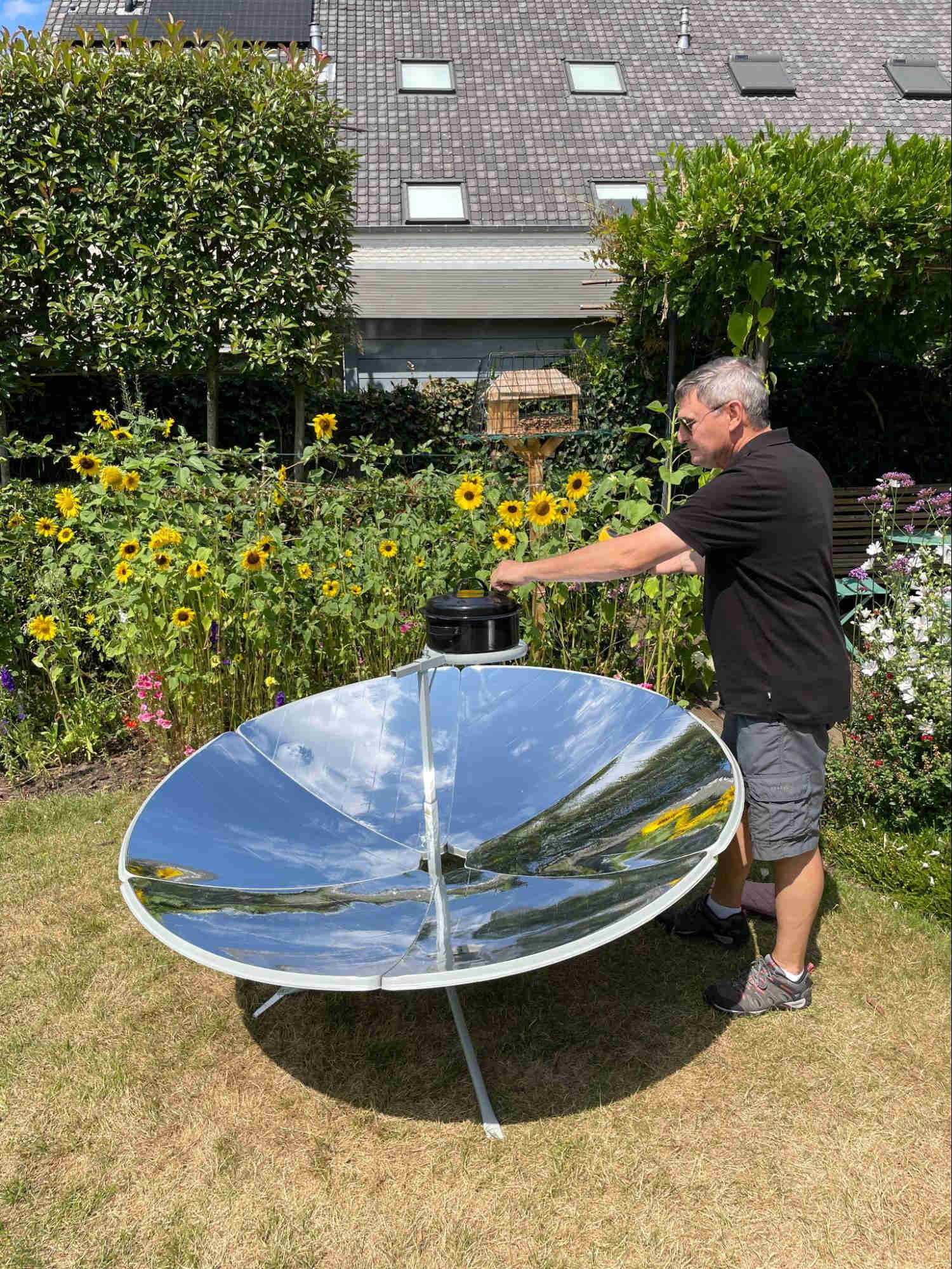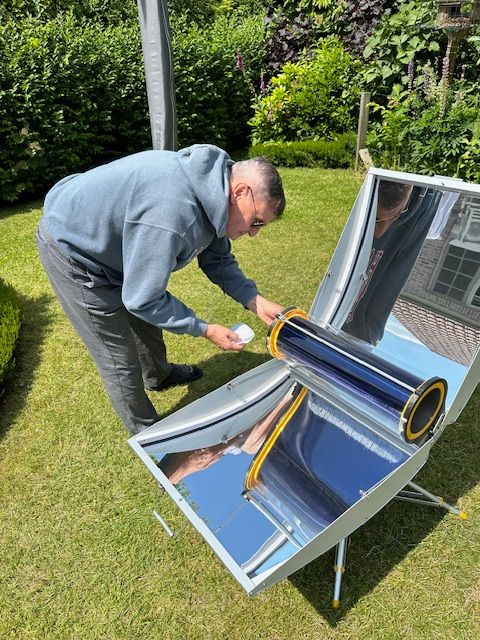What started as a do-it-yourself idea in a garden shed in 2021, has now grown into an international collaboration. Following the official funding of the project in September 2023, Congolese and Belgian scientists and students from different faculties came together in Belgium to collaborate and exchange knowledge about the scientific, economic, legal, societal, and technical aspects related to the development of the solar cookers. Many student exchange projects have taken place since then.
About
About 2.4 billion people in the world cook with wood, animal waste or charcoal fires because they lack sustainable fuel (Solar Cooker International). While doing so, they inhale smoke and soot known to cause health problems. This project wants to co-create solar cookers together with the most vulnerable communities in Lubumbashi, DRC to harness free solar energy so that they can breathe clear air, drink safe water, and preserve the environment.


Vision

The specific goal is to design inexpensive solar cookers for domestic use. Solar cookers are commercially available but often need to be imported and transported over a long distance, and are typically very expensive. On top of that, they are not necessarily adapted to the local needs of families. Therefore, an important constraint of our project is that the novel solar cookers should be made locally from recycling material that is easily accessible and responding to the local needs.
Mission
We are developing a business plan for local small companies so that they can be manufactured locally and distributed at low costs. To create these inexpensive solar cookers, the project has founded a multidisciplinary research and development team within UniLu, in cooperation with UHasselt, to test new prototypes.
To achieve this, relevant interdisciplinary expertise (e.g. engineering, statistics, physics, economics and social sciences) from many different faculties at both universities will be integrated and the project will enable a maximum exchange of expertise. We are convinced that our inexpensive prototypes will be fit for small businesses to produce and sell anywhere in the DRC, Africa, or the world. Finally, the project will facilitate the education of a new generation of students to come up with innovative solutions where many of the United Nations Sustainable Development Goals (SDGs) are implemented.


